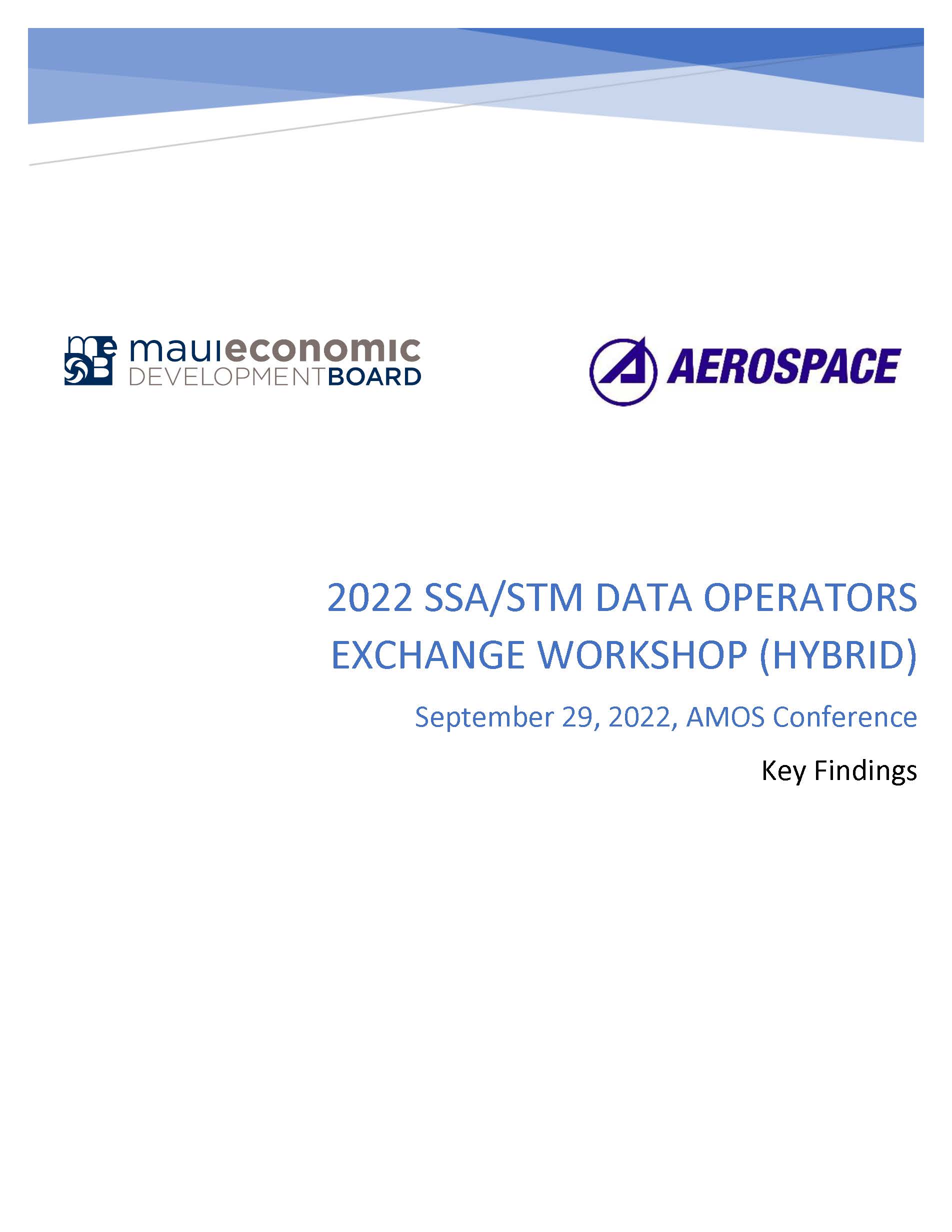
The Maui Economic Development Board (MEDB) and The Aerospace Corporation led the 7th Annual International SSA Data Providers and Satellite Owner/Operators Workshop on 29 September 2022 in Wailea, Hawaii, USA. This was the latest in a series of invitation-only workshops held in conjunction with the Advanced Maui Optical and Space Surveillance Technologies (AMOS) Conference. This year’s workshop was a hybrid format. The workshop included government, and non-governmental organization (NGO) representatives from Canada, ESA, EU, France, Germany, Japan, NASA, the United Kingdom, and U.S. government (Department of Commerce, Department of State, the Federal Aviation Administration, and U.S. Space Force).
The workshop was organized into a main session followed by four breakout groups that allowed for “not for attribution” discussion. The workshop’s goal was to provide insights to policymakers on operator perspectives. The main session included a keynote address, a paper presentation, with open discussion following both. The keynote address was an update given by Richard DalBello, Director, Office of Space Commerce, NOAA, U.S. Department of Commerce. Lauren Hale from the Aerospace Corporation presented the paper, Partnering Not Bossing: Better Leveraging International Capabilities for Space Domain Awareness. The four breakout sessions provided participants with an opportunity to prioritize technical and non-technical interoperability issues affecting SSA data and information sharing; lessons learned from current SSA info sharing best practices; and promising hybrid solutions.
The key takeaways from the workshop were that regular international dialogue builds consensus among partners in identifying technical and non-technical challenges and opportunities; prioritizing and synchronizing actions collectively; building trust; and spreading lessons learned. Importantly, the breakout groups consistently identified the need to create incentives for SSA data providers and satellite owner/operators’ to voluntarily participate in efforts to overcome the identified issues. This finding suggests that efforts to create incentives should be given higher priority.
